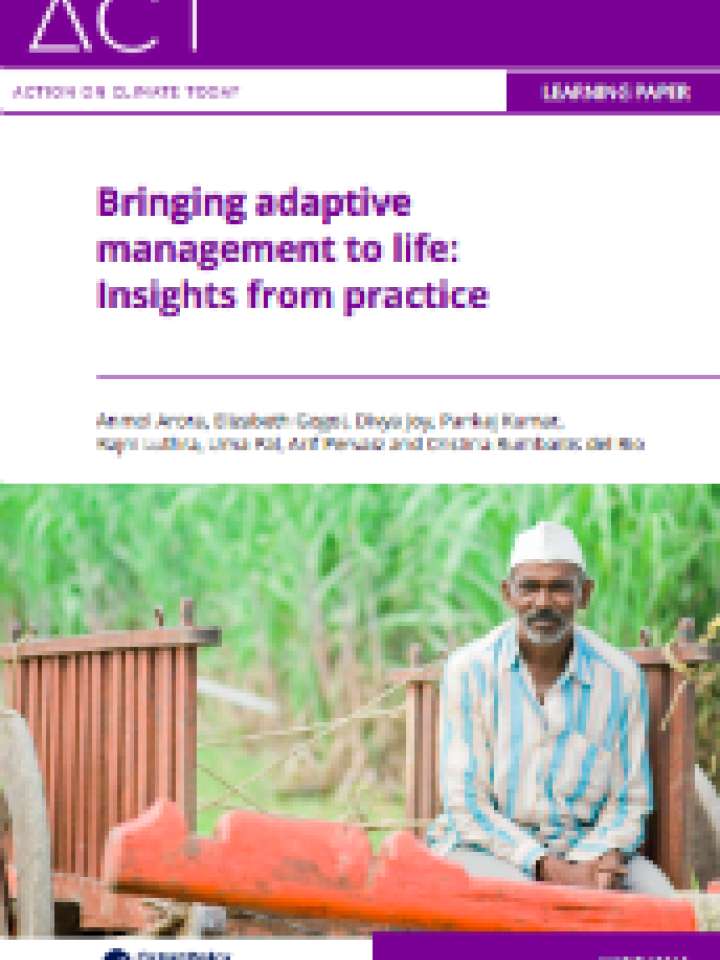Bringing adaptive management to life: Insights from practice
An adaptive programme management approach is well suited to address the complex and interconnected impacts of climate change facing developing countries. The pathway to adapting to climate change is unknown, and there are many deep-rooted institutional, political, economic and social barriers. Adaptive programmes can provide the flexibility to allow those delivering technical assistance to support governments to experiment with different entry-points for adaptation, and learn and adapt from successes and failures.
The Action on Climate Today (ACT) programme has been engaged with national and sub-national governments across South Asia over the last four years, to assist in integrating climate change adaptation into development planning and delivery. As the programme draws to a close, this learning brief reflects on some of the major lessons learned on the challenges and opportunities of using an adaptive programme management approach to support governments to adapt to climate change. It sets out a framework for an adaptive programme, including a set of essential core principles:
- An evolving Theory of Change;
- Locally-led and politically savvy delivery approach;
- Experimentation and learning; and
- Stakeholder alignment.
It also includes two sets of essential resources required: Management flexibility and the availability of adequate finances. The framework is illustrated with examples of the challenges ACT faced in operationalising this framework, and how the programme overcame them.
Explore further
